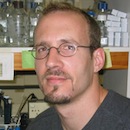Advisory Board and Editors Molecular Biology

David Vauzour
Dr David VAUZOUR received his PhD from the University of Montpellier (France) in 2004. His research, based at the University of Reading (2005-2011), and at the Norwich Medical School, University of East Anglia, UK (2011- present), has focused on investigating the molecular mechanisms that underlie the accumulating body of epidemiological, and medical evidence, on a positive correlation between the consumption of diets rich in fruits and vegetables and a decreased risk of (neuro)degenerative disorders. In this context, his initial work provided considerable insights into the potential for natural products to promote human vascular function, decrease (neuro)inflammation, enhance memory, learning and neuro-cognitive performances and to slow the progression of Alzheimer’s and Parkinson’s diseases. His recent interests concern how phytochemicals modulate ApoE genotype-induced cardiovascular risk and neurodegenerative disorders and their underlying mechanisms. Dr Vauzour sits on the board committee of “Groupe Polyphenols” and is the Co-Chair of the ILSI Europe “Nutrition and Mental Performance Task Force“.

Natascia Ventura
Natascia Ventura received her MD and PhD degrees at the University of Rome and her post-doctoral training at the University of Colorado at Boulder. Since 2012 she leads the Mitochondrial-associated aging and diseases group and her research mainly uses C. elegans as a powerful genetic tractable organism to unravel mechanistic aspects of mitochondrial-stress control of longevity and to develop models for human mitochondrial-associated diseases.

Alexis Verger
Senior Molecular Biologist (CR1 CNRS) at the Interdisciplinary Research Institute (IRI) - Lille 1 University - France.
My lab studies how human genes can be turned on and off by transcription factors. We investigate the fundamental mechanisms underlying specific gene control in the context of diseases, such as cancer.

Jiri Vondrasek
Head of Bioinformatics Department at Institute of Organic Chemistry and Biochemistry, Academy of Sciences of the Czech republic, lecturer at faculty of natural sciences, Charles University - Prague, vice president of the Czech Bioinformatics Association and national coordinator of the European infrastructure for biological data - ELIXIR.

Khor Waiho
Researcher at the Institute of Tropical Aquaculture and Fisheries, Universiti Malaysia Terengganu. Dr. Khor Waiho obtained his Ph.D. in Aquaculture from Universiti Malaysia Terengganu (2016) and completed a 2-year postdoctoral (Biology, 2017-2019) at Shantou University, China. His current research focus includes the impact of climate change on crustacean growth and reproductive biology, population biology and fishery, and the aquaculture of economically important crustacean species.

Ping Wang
Associate professor of Pediatrics, Microbiology, Immunology, and Parasitology with the research emphasis on molecular mechanisms of fungal pathogenesis.

Ingrid M Weiss
Professor for Biobased Materials at IBBS - Institute of Biomaterials and Biomolecular Systems, University of Stuttgart, Germany.
Past Head of Biomineralization at INM – Leibniz Institute for New Materials, Saarbrücken, Germany and Private Lecturer "Biochemistry" at the University of Regensburg, Germany.

Gary M. Wessel
Professor of Biology in the Department of Molecular Biology, Cellular Biology, and Biochemistry at Brown University.

Siouxsie Wiles
Dr Siouxsie Wiles MNZM studied medical microbiology at the University of Edinburgh, followed by a PhD in microbiology at the Centre for Ecology and Hydrology in Oxford and Edinburgh Napier University. She is currently an associate professor at the University of Auckland. There she heads up the Bioluminescent Superbugs Lab where she and her team make nasty bacteria glow in the dark to find new antibiotics and to better understand how bacteria become more infectious. Siouxsie has won numerous awards for both her science and her science communication. In 2017 she published her first book, ‘Antibiotic resistance: the end of modern medicine?’ and in 2019 was appointed a member of the New Zealand Order of Merit for services to microbiology and science communication. When the pandemic arrived, Siouxsie joined forces with Spinoff cartoonist Toby Morris to make the science of COVID-19 clear and understandable. Their award-winning graphics have been translated into multiple languages and adapted by various governments and organisations around the world. Siouxsie was the Supreme Winner of the Stuff Westpac 2020 Women of Influence Award, named by the BBC as one of their 100 influential women of 2020, and in 2021 was named Kiwibank New Zealander of the Year.

Albert HC Wong
Albert H.C. Wong is a neuroscientist and psychiatrist at the Centre for Addiction and Mental Health, and a Professor at the University of Toronto. He attended medical school at the University of Toronto, where he also completed specialty training in psychiatry and a PhD in neurobiology. Dr. Wong’s lab uses animal models and clinical studies to investigate genetic, epigenetic and developmental mechanisms of psychiatric disease. His areas of clinical expertise are in schizophrenia and brain stimulation.

Susanna A Wood
Susie is a freshwater scientist and molecular ecologist based at the Cawthron Institute in Nelson, New Zealand. Her research is multidisciplinary and integrative, with the overarching goal of improving knowledge on freshwater ecosystems. It spans three broad areas: (i) toxic cyanobacteria dynamics in freshwater systems (both planktonic in lakes and benthic in rivers), (ii) the development and application of molecular techniques to monitor and understand aquatic systems, and (iii) integrating cutting edge techniques with more traditional paleolimnological approaches to guide future lake management and restoration. Wood is the co-programme leader of a project funded in 2017 known as ‘Our lakes’ health: past, present, future’ (www.lakes380.com). The team is obtaining a nationwide overview of health for about 10% of New Zealand’s lakes using paleo-environmental reconstructions. The team is using sediment coring, novel proxy analyses (environmental DNA, high-resolution core scanning), geochronology and mātauranga Māori (indigenous knowledge) to reconstruct water quality and lake health over the past 1000 years and provide a richer understanding of the value of New Zealand’s lakes.

Hao Wu
Hao Wu is a patent scientist in an oncology-focused biotechnology company, Exelixis, Inc. She obtained her Ph.D. in molecular biology from Rowan University (previously known as the University of Medicine and Dentistry of New Jersey (UMDNJ) – Stratford Campus). With hands-on knowledge in various aspects of biology, including molecular biology, cell biology, biochemistry, immunology, neuroscience, oncology, Hao has worked on inventions spanning a broad range of technologies, for example, biologics, antibodies, biomarkers, diagnostics, cell therapy, gene therapy, and sequencing.

